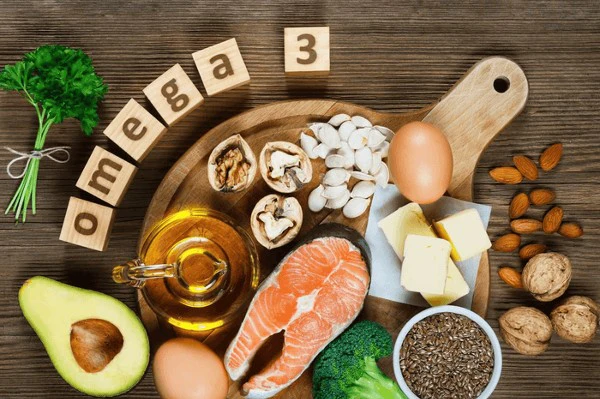
Introduction
Hormones play a vital role in regulating metabolism, mood, energy levels, and overall health. An imbalanced diet can contribute to hormonal disruptions, leading to weight gain, fatigue, mood swings, and other health issues. By making smart dietary choices, you can naturally support hormone balance and enhance well-being.
Key Nutrients for Hormone Balance
1. Healthy Fats
- Sources: Avocados, olive oil, nuts, seeds, and fatty fish.
- Benefits: Essential for hormone production and reducing inflammation.
2. High-Quality Protein
- Sources: Lean meats, eggs, tofu, lentils, beans, and Greek yogurt.
- Benefits: Supports muscle health and stabilizes blood sugar levels.
3. Fiber-Rich Foods
- Sources: Leafy greens, cruciferous vegetables, flaxseeds, chia seeds, and whole grains.
- Benefits: Aids digestion, supports detoxification, and helps regulate estrogen levels.
4. Omega-3 Fatty Acids
- Sources: Salmon, walnuts, flaxseeds, and chia seeds.
- Benefits: Reduces inflammation and supports brain and hormone function.
5. Antioxidant-Rich Foods
- Sources: Berries, dark chocolate, green tea, and colorful vegetables.
- Benefits: Protects against oxidative stress that can disrupt hormone balance.
6. Best Fruits for Hormonal Imbalance
- Berries (Blueberries, Raspberries, Strawberries): Rich in antioxidants, they help reduce inflammation and regulate estrogen levels.
- Avocados: Contain healthy fats that support hormone production and reduce cortisol (stress hormone) levels.
- Bananas: Provide vitamin B6, which aids in progesterone production and supports mood stability.
- Pomegranates: Help block excess estrogen production, promoting hormonal balance.
- Citrus Fruits (Oranges, Lemons, Grapefruit): High in vitamin C, which helps regulate adrenal function and reduce cortisol levels.
- Apples: Contain phytoestrogens that support estrogen balance and help detox excess hormones from the body.
Foods to Avoid for Hormonal Balance
- Processed Foods: High in preservatives and unhealthy fats, which can trigger inflammation.
- Refined Sugars: Leads to insulin resistance and hormone imbalances.
- Excess Caffeine and Alcohol: Disrupts sleep and affects cortisol levels.
- Dairy and Soy (for some individuals): Can mimic estrogen and cause imbalances in sensitive individuals.
Sample Meal Plan for Hormone Balance
Breakfast
- Scrambled eggs with avocado and whole-grain toast.
- Chia seed pudding with almond milk and fresh berries.
Lunch
- Grilled salmon with quinoa and roasted Brussels sprouts.
- Lentil soup with a side of avocado and mixed greens.
Dinner
- Stir-fried tofu with brown rice and steamed broccoli.
- Baked chicken with sweet potatoes and asparagus.
Snacks
- Greek yogurt with walnuts and honey.
- Hummus with cucumber and carrot sticks.
- A handful of berries or citrus fruit slices.
Lifestyle Tips for Hormonal Health
- Manage Stress: Practice meditation, deep breathing, and relaxation techniques.
- Exercise Regularly: Engage in strength training, yoga, and cardio.
- Prioritize Sleep: Aim for 7-9 hours of rest to regulate hormone production.
- Hydrate Well: Drink plenty of water and herbal teas to support detoxification.
- Avoid Endocrine Disruptors: Reduce exposure to plastics, pesticides, and chemicals in processed foods.
Conclusion
A well-balanced diet is essential for maintaining hormonal health. By focusing on whole foods, healthy fats, and mindful lifestyle choices, you can naturally balance your hormones and improve overall well-being. Small, sustainable changes in your diet and daily habits can lead to long-term benefits for your health and vitality.

